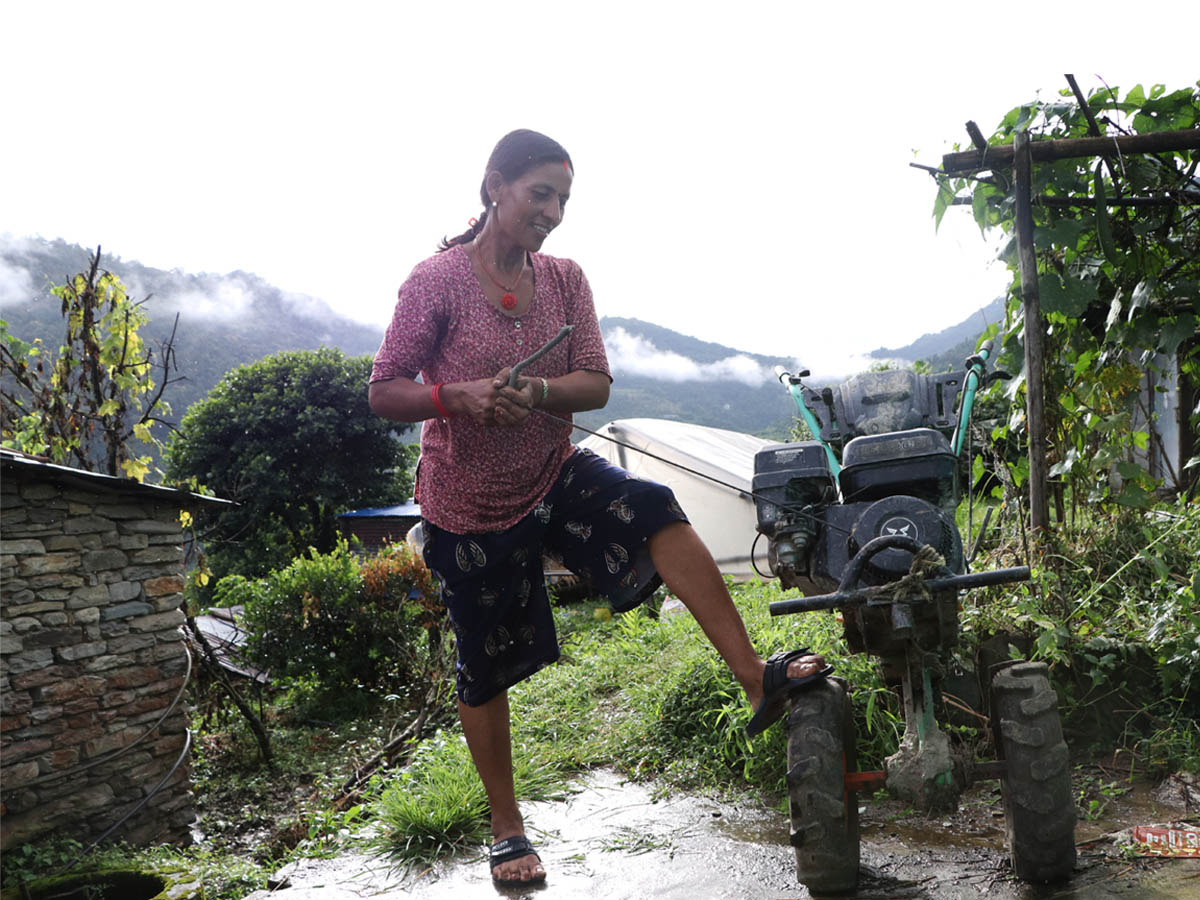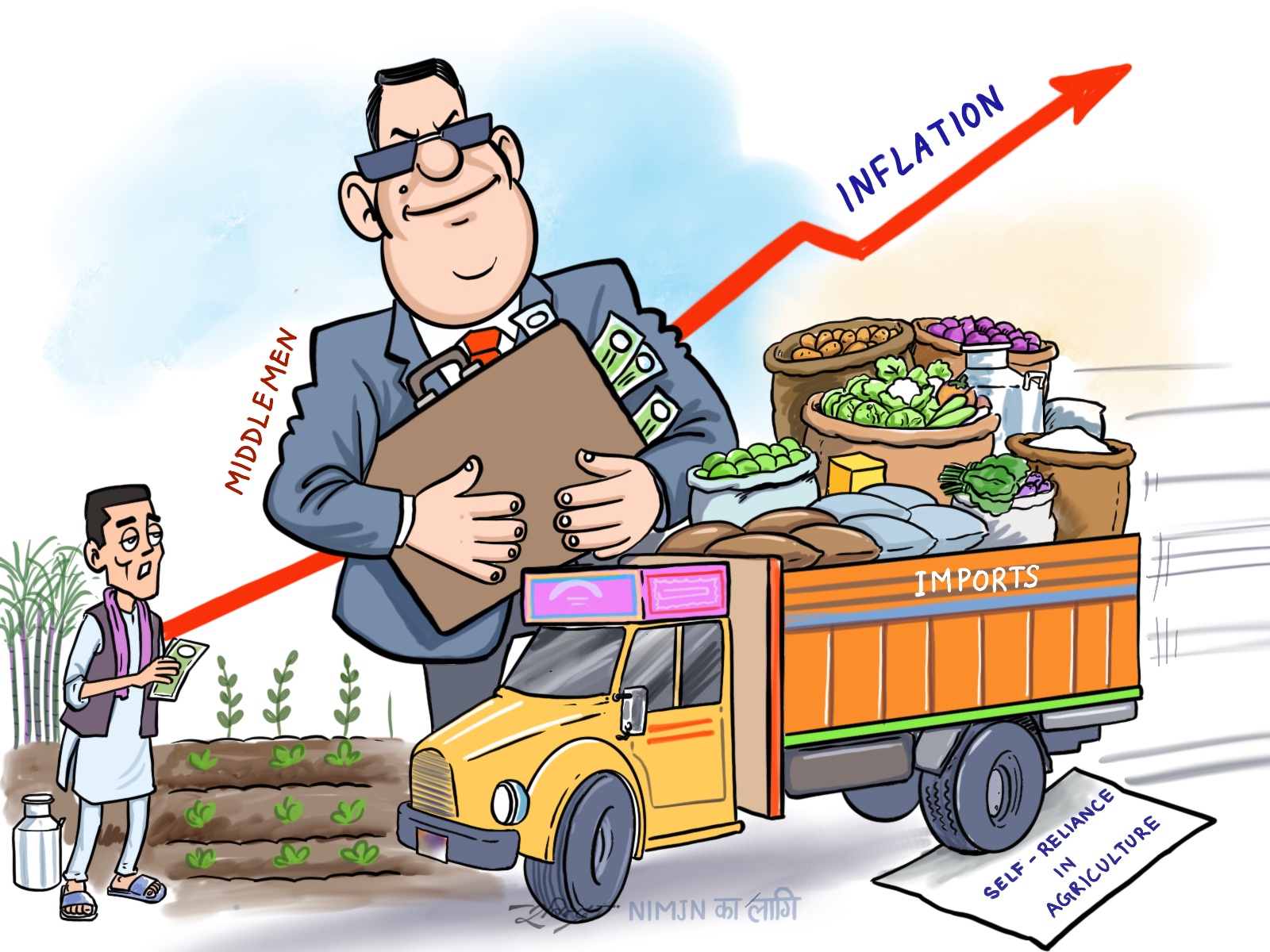Rup Budamagar, originally from Rolpa, was watching a video on YouTube one day during his free time. Rup was working in Malaysia at that time. While surfing through the YouTube channel he saw a video about how a person had earned a substantial sum of money by rearing goats.
Budamagar had already spent five years in Malaysia at the time and he had also worked for five years in Dubai. Having stayed abroad for employment for a pretty long time he was thinking of doing something whereby he would be able to stay with his family and that particular video acted like a catalyst. Thus, in 2075 B.S., he returned home.
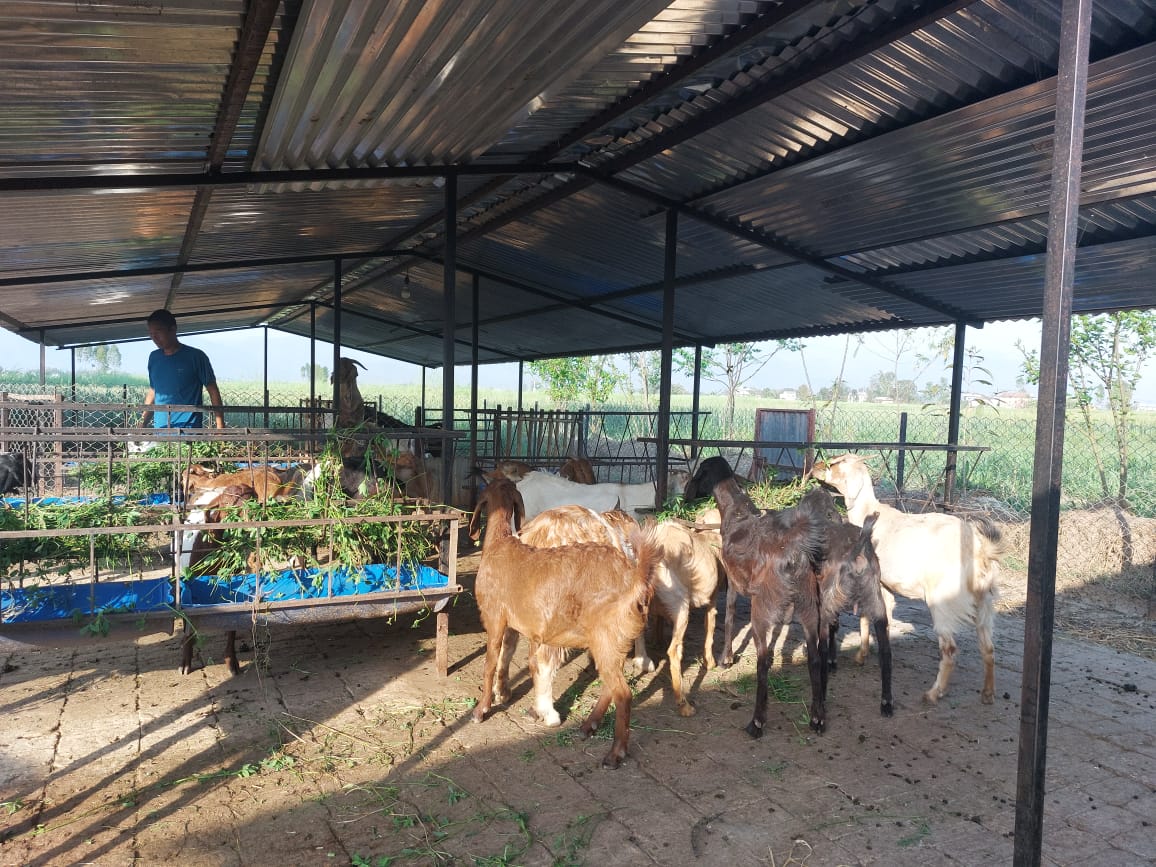
With the money that he had earned while working abroad, Budamagar had bought a piece of land in Dang and moved his family there. He decided to stay with his family in Ghorahi – 6 and get involved in goat farming. He bought some more land and started BM Goat Farm. At present, along with the local breed, he has 46 goats including other breeds like jamunapari, khari and boer. He invested Rs 10 lakhs, which he had saved while working in Dubai and Malaysia, to construct a wire fence around his farm and also to build a shed for the goats.
Prem Bahadur Chaudhary of Ghorahi -2, established ‘Prem Paurakhi Buffalo Farm’ in Rampur. He started his buffalo-rearing business around three years ago in 2077 B.S. Initially, Chaudhary had started his business with only one buffalo, and today he owns five buffalos and five calves. Chaudhary, who at present sells 25 liters of milk daily, has concluded that one can run a business in their local area itself and make a comfortable living. However, he requires government support for that.
Budamagar is also awaiting government support so that he can earn a decent living through goat farming. Though he had started his business with a lot of enthusiasm and expectations, he has not been able to earn the desired returns. He mentions that he has not been able to earn as expected and adds, “When I was working abroad, I had watched a video on YouTube which showed that one can earn quite a bit through goat farming. I have now realized that the videos only show the rosy picture of making profits and it is difficult to actually operate a business.”
Both the federal and local level governments have a facility to provide grants to help farmers like Budamagar and Chaudhary. However, farmers like them have not been receiving such grants. Budamagar shares that he has heard about the government facility of providing such grants to returnee migrant workers but he has not received any grant till date. Meanwhile, Chaudhary also laments he had heard that the local government would provide such grants to farmers like him and had thus decided to open his business. He shares that after registering his farm he had gone to Ghorahi Municipality but the officials had told him there was no such scheme from the government and he decided not to further visit any other government entity to seek a grant. “Livestock farmers face problems in availing fodder,” he says, adding, “However, I have not received a grant from any government office.” Chaudhary mentions he has plans to add more buffalos and expand his business if he does get any government support.
Meanwhile, Budamagar states there is even no veterinary service nearby where he could take his goats if they fell ill or if head to vaccinate them. “There is nobody willing to speak up for the farmers,” he says, adding, “There are many relief and grant facilities being provided by the government under various headings but farmers like us are not even aware of them.” If there was a veterinary service close by, easy access to treatment and medicines, livestock insurance and help in the market, Budamagar has the courage to rear 100 goats.
Thirty-four-year-old Narayan Acharya from Tulsipur Sub-metropolitan City – 17, has invested the money which he had earned during his two-year stay in Qatar to open Narayan Poultry Farm. Around five years back in 2075, he invested Rs 40 lakhs and started a poultry farm on eight katthas of his own land and he too has not received any government grant till now. Since his parents kept telling him that as he was the only son he should not go abroad, Acharya decided to open a business in his hometown. Since it was easier than other types of work and he could earn a profit within a short period of time, he bought layers chicken to start egg production.
After he saw a notice issued by the livestock department of Tulsipur Sub-metropolitan City office regarding the disbursal of grants, Acharya filed an application to avail grant. However, he has not yet received any grant.
“Last year, the local livestock department had published a notice stating it would provide grants to farmers to improve their pigpens and I had applied but I was not selected,” rues Acharya, adding, “I have not heard of any other program which will encourage farmers being introduced by any other government authority.”
Federal and provincial governments allocate budget
Farmers like Budamagar, Chaudhary, and Acharya have not received any grant but all three tiers of the government – federal, provincial, and local – do allocate budget for livestock farming. The government provides the grants in cash and also other necessary equipment.
Sudam Bhatta, former acting chief (now retired) of the Veterinary Hospital and Animal Services Expert Center, Dang, the federal and provincial governments had allocated Rs 9.58 crores for agriculture and livestock farming for Dang in the budget of fiscal 2079/80.
As per the Agriculture Census 2078, there were 101,880 families in Dang who owned 49,278 hectares of land. Of this total, 100204 families own 42,451 hectares of cultivable land. They are all considered farmers according to the Agriculture Census.
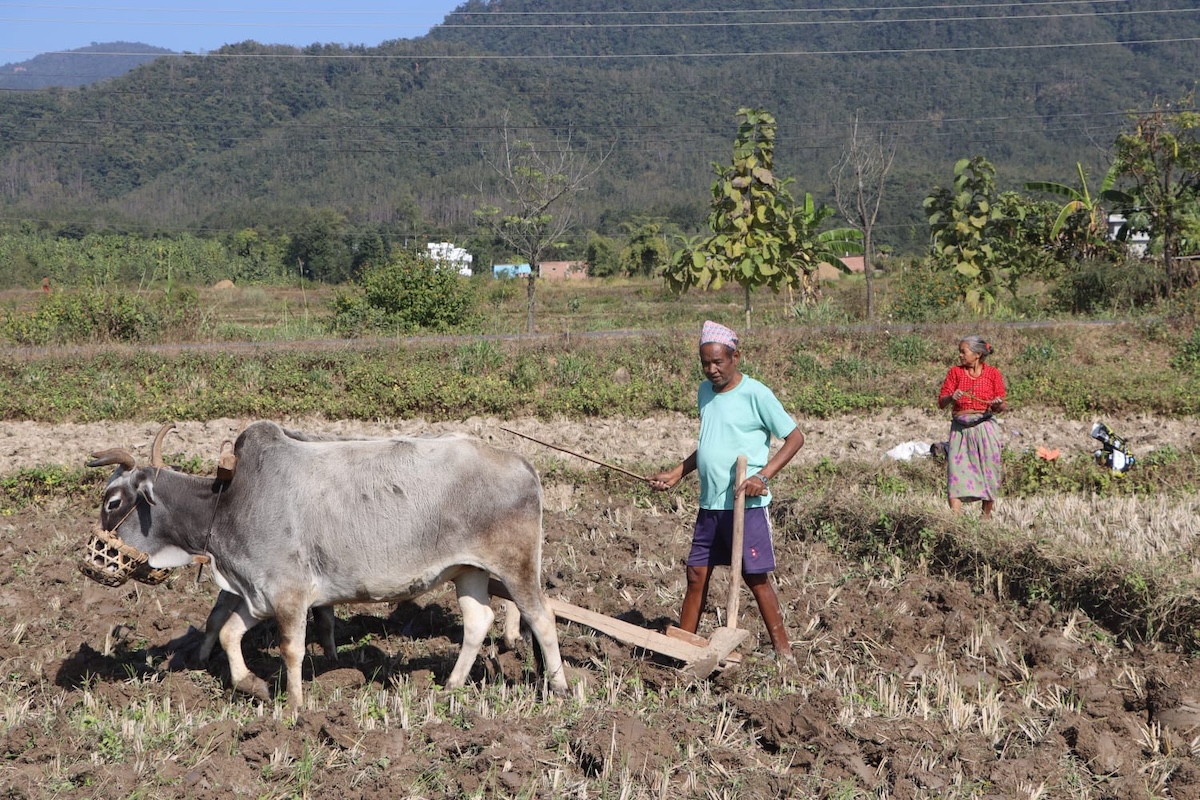
There are 84,868 families who raise livestock. They raise 93,219 cattle, 68,380 buffalos and 348,000 sheep and goats. The district has a total of 20,388 sheep and 61,831 pigs. Similarly, 57,727 households are involved in raising chickens and there are 1,547,731 chickens in the district. Likewise, there are 88,415 birds of other breeds in the district.
To serve farmers across the district the office has a budget of Rs 9.09 crores for recurrent expenditure and Rs 49 lakhs for capital expenditure, according to Bhatta. Of the total amount, Rs 5.55 crores has been allotted for grants. Bhatta states that various types of grant programs are being run with that allocated sum. As per Bhatta, the office publishes notices in local newspapers and displays them in the office, and based on this information, farmers come to the office seeking relief or grants. He, however, acknowledges that farmers who do not have access to information and those living in remote areas may be missed.
Dr. Ghanshyam Bhandari, an agricultural scientist at the Ginger Research Center, emphasizes that any organization should disseminate information about their programs from their offices through any medium. He mentions that since access to information is a right of every citizen, agriculture-related offices need to implement farmer-friendly programs and disseminate information to farmers.
Budget of Agricultural Knowledge Center returned
Out of the budget allocated for the previous fiscal year 2079/2080, 50% had been allotted for providing grants to farmers through various schemes and programs but a majority of them were not introduced. Farmers have not received grants under various headings through the Agricultural Knowledge Center and the funds have been returned.
For instance, Rs 15 lakhs which had been allocated for the ‘Climate Control Greenhouse’, a program with a total budget of Rs 30 lakhs and to be run in partnership with various organizations, has been returned. Similarly, Rs 15 lakhs out of the Rs 30 lakhs separated for the purchase of an agricultural ambulance to transport agricultural produce has been returned. Additionally, Rs 40 lakhs out of the Rs 80 lakhs allocated for the expansion of the agricultural produce storage facility has also been returned.
Prithviraj Lamichhane, an agricultural economist at the Agricultural Knowledge Center, attributes the return of the grant budget to various reasons. "There are some grant programs which have been affected by budget cuts," he says. According to him, strict regulations related to fund transfers have also led to lower budget expenditures.
Not even half the budget utilized
It has been discovered that not even half of the Agricultural Knowledge Center's budget related to agriculture and farmers has been spent. The data made available by the center reveals only Rs 1.87 crores out of the total budget of Rs 4.32 crores allotted, which is 43.2%, has been spent till the end of Asar 2080.
The lowest expense made was on agriculture and livestock products industry, machinery and infrastructure development programs (current expenditure). Only Rs 883,000 out of the allocated Rs 9,456,000 has been spent under this heading.
The center has informed that the highest expenditure was made on the Prime Minister Agricultural Modernization Project, a conditional grant from the federal government. Out of the allocated budget of Rs 3,750,000 only Rs 3,507,000 has been utilized. Likewise, Rs 2,096,000 has been spent out of the allocated budget of Rs 3,190,000 for the Smart Agriculture Village program of the Agricultural Knowledge Center for the current fiscal year. Meanwhile, out of the allocated budget of Rs 21,928,000 for the Agricultural Production, Food, and Nutritional Security Program only Rs 10,275,000 has been utilized.
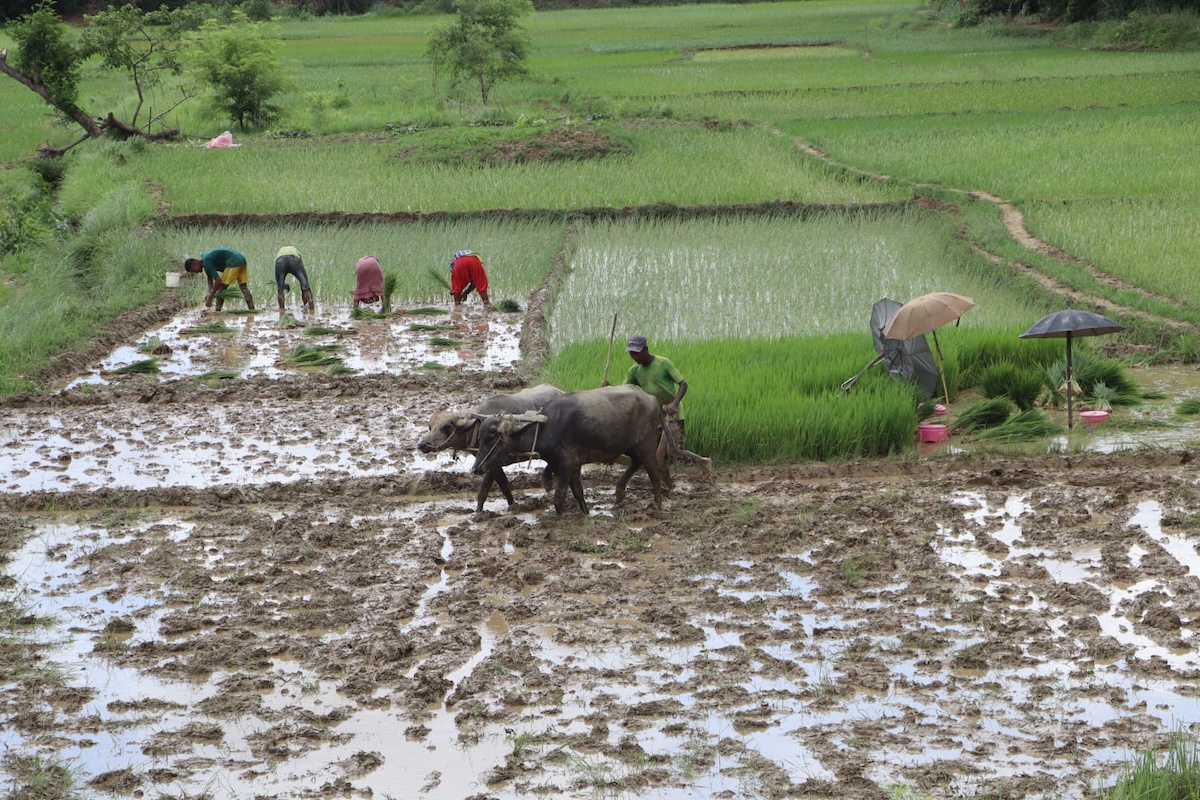
The very fact that the allotted budget has not been spent suggests that the grants provided by the Agricultural Knowledge Center haven't reached the farmers. There are several reasons why farmers miss out on grants distributed through the Agricultural Knowledge Center, including lack of information access by farmers, insufficient time, and unclear procedures.
There has also been criticism from several quarters that business people are being provided grants when there aren’t any grants for farmers at the local levels. The process to obtain a grant is quite cumbersome and many farmers do not receive them due to lack of information about the programs that have been launched.
The other factors due to which farmers are deprived of grants are lack of access to the office, cumbersome procedures, geographical remoteness, illiteracy and lack of information about grants. The other major issue is that farmers who cultivate their agricultural land in the villages do not receive grants because the system does not provide grants to those who have not registered their farms. Many farmers have been complaining that they usually do not get any notification issued by the office, and even if they do, they cannot submit applications. What is more harrowing for the farmers is that even after submitting applications, they are not guaranteed they will receive grants.
KB Masal, coordinator of Nagarik Samaj Dang, reveals that the actual farmers are often deprived of grants as they do not receive information on time. "Genuine farmers are most of the time busy with their work," he says, adding, "They do not know which organization provides grants, when it will be provided, how much will be provided and how they can avail those grants."
He further explains that even when farmers receive information about the grants most of them are unwilling to apply for them due to the legal complexities and hassles involved. "Some of the reasons why farmers cannot take part in grant programs are the criteria of mandatory farm registration, renewal, PAN, among others," he adds.
Dr. Bhandari, an agricultural scientist at the Ginger Research Center, also acknowledges the fact that the cumbersome paperwork required to obtain the grants discourages some farmers. "Since the process to obtain the grants is pretty time-consuming farmers feel that if they spend their time to get grants their businesses might suffer," he explains.
Meanwhile, Masal suggests that whether it is the local, provincial or federal government, when they design grant programs, they should do it in a way that makes it easy for farmers to access those grants.
However, Tikaram Khadka, Mayor of Tulsipur Sub-metropolitan, claims they have introduced grant programs for farmers and the programs are being implemented. "We have been distributing grants based on priority," he says, adding, "Just because they did not receive a grant once farmers should not be discouraged. We will provide necessary agricultural materials as grants next year as well."
According to the Agriculture Census 2078, there are 25,216 farmer families in Tulsipur Sub-metropolitan. Mayor Khadka says they have taken the initiative and introduced various farmer-centric programs like Smart Agriculture program and One Ward, One Product program to encourage farmers.
Shridhar Adhikari, head of the Agriculture and Livestock Business Promotion Division of Ghorahi Sub-metropolitan, says that the office has been publishing public notices and disseminating that information in all 19 wards of Ghorahi. "We collect applications for materials from the farmers after which we conduct field studies and then only distribute grants based on priority," he elaborates.
As per the Agriculture Census, there are 25,407 farmer families in Ghorahi Sub-metropolitan. He states that applications of the farmers who did not receive grants have been filed and they will receive the requested grant next year.
Local Produce unavailable in Agricultural Cooperative Market
The agricultural cooperative market in Dang is a blatant example of how the agricultural budget allocations are spent and why farmers are not benefiting from those grants. Sarvottam Multipurpose Cooperative started operating a cooperative market in Tulsipur Chowk, the main area of Ghorahi, in Mangsir, 2077.
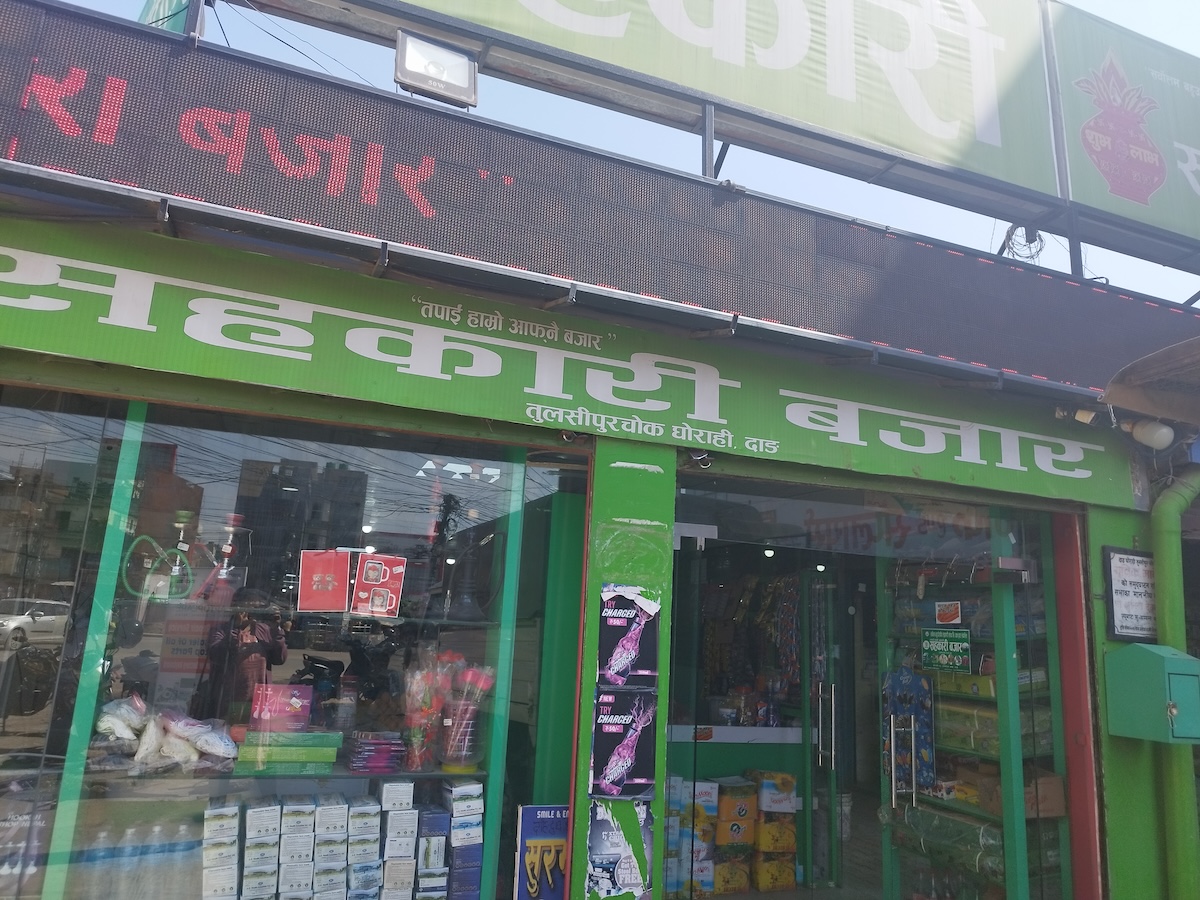
The market was established with a grant provided by the provincial government and it was supposed to be developed as a hub to sell agricultural products. The market was inaugurated with much fanfare by Arati Poudel, the then Lumbini Province Minister for Land Management, Agriculture and Cooperatives. The market had been set up to sell local produce, daily consumer goods and groceries. There were plans to also sell organic vegetables and fruits, milk and milk products, local vegetables and food items, plastic containers, stationery, and gift items.
The cooperative market received a supplementary grant from the Provincial Ministry of Land Management, Agriculture and Cooperatives to purchase fixed assets. It was launched with a total investment of Rs 14,368,428, out of which Rs 10,312,776 was provided through a combination of provincial government grant (Rs 4,949,900) and the institution's own funds (Rs 5,360,800) to purchase the property, and Rs 4,055,600 for working capital.
At that time, Poudel had made an announcement that the provincial government would provide a subsidy of Rs 25 for each kilogram of honey and Rs 2 for each kilogram of vegetables to farmers who brought their produce to the market.
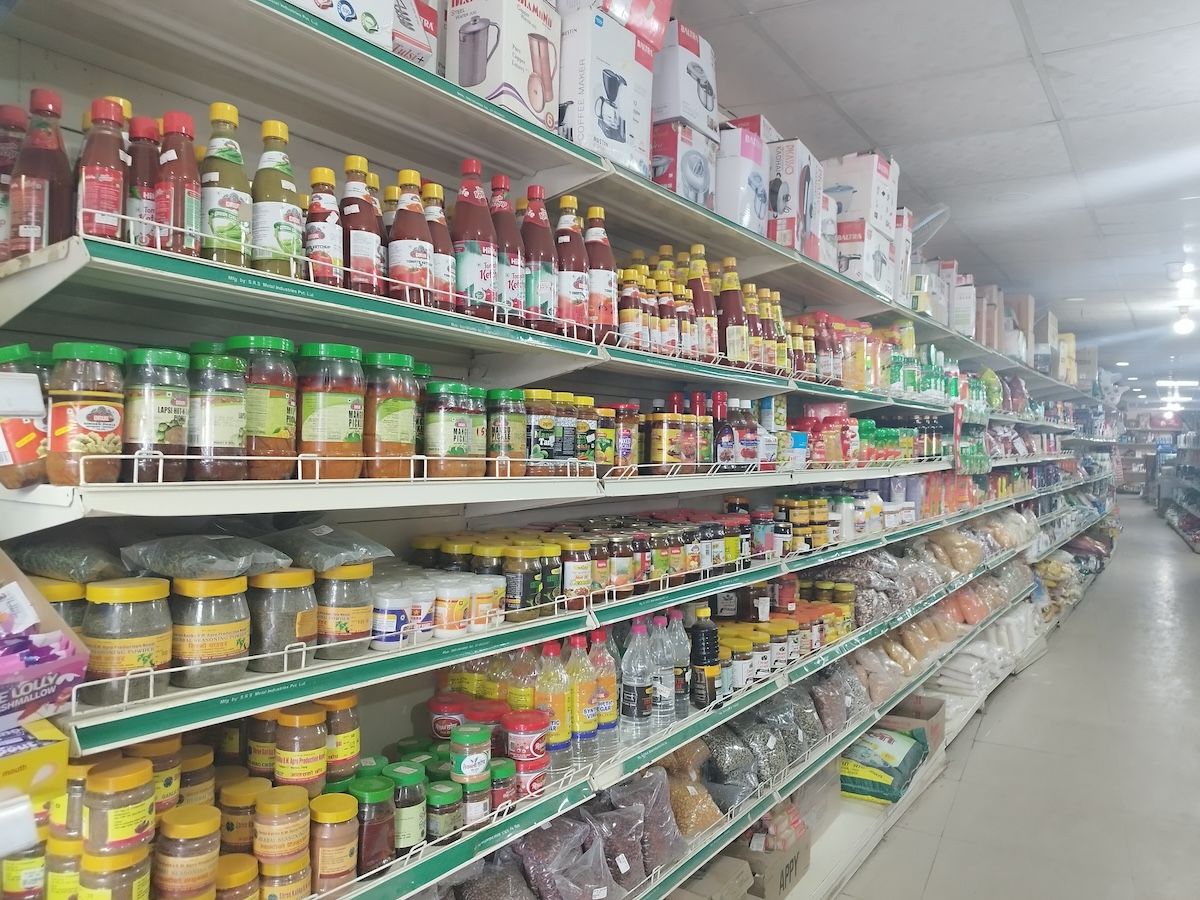
However, within six months of its opening, the agricultural cooperative market has transformed into a supermarket. Initially, agricultural products were sold in the market but at present there is no agricultural produce available in the market. Radha Basnet of Ghorahi-15 shares her experience of buying agricultural products when the market was first opened. "Now, there are no agricultural products produced by local farmers available in this market," she laments.
Read our guidelines for Republishing this story here.

